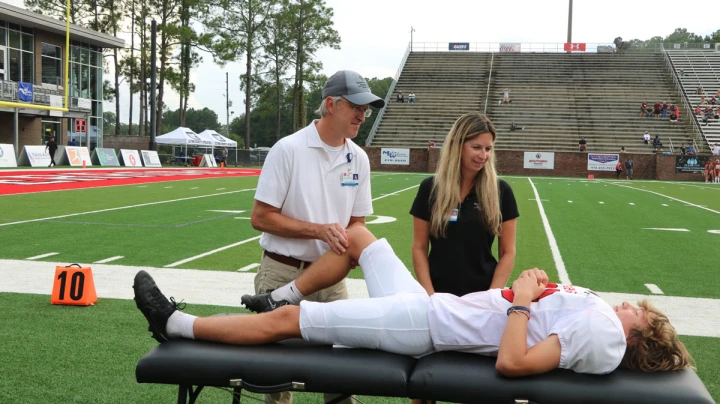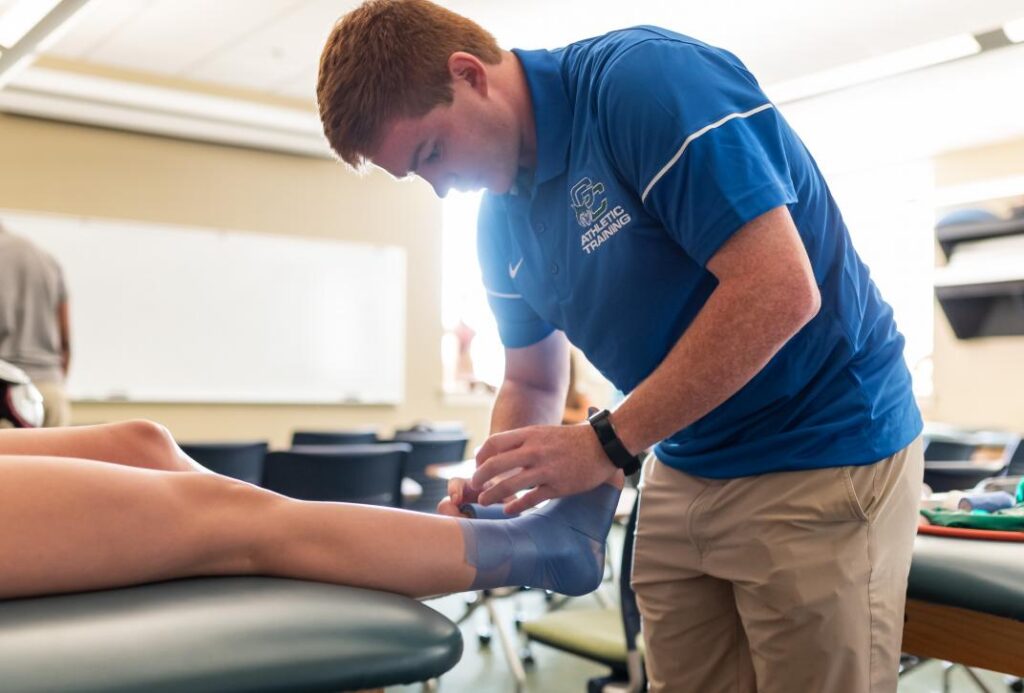Becoming a sports medicine physician is a rewarding journey, especially in a health-focused state like Georgia. As more individuals turn to fitness, athletics, and injury prevention, the demand for certified sports medicine professionals continues to rise. However, before stepping into this dynamic field, it’s crucial to understand the certification and licensing requirements.
In this guide, we’ll walk you through the essential certifications, degrees, and licenses required to become a sports medicine physician in Georgia, including whether an MD is necessary.
Understanding Sports Medicine in Georgia

Table of Contents
A sports medicine physician specializes in the prevention, diagnosis, and treatment of injuries related to physical activity. These professionals are often seen working with athletes, fitness enthusiasts, and patients recovering from musculoskeletal injuries.
In Georgia, sports medicine physicians work in various settings, including:
- Orthopedic clinics
- Hospital departments
- College and professional sports teams
- Private practices
- Rehabilitation centers
The path to becoming a sports medicine physician involves a combination of advanced education, clinical training, and board certifications.
Educational Path to Become a Sports Medicine Physician
To practice sports medicine in Georgia, physicians must complete several educational milestones. Here’s a breakdown:
1. Bachelor’s Degree
Aspiring sports medicine doctors must earn a 4-year undergraduate degree, ideally with a focus in:
- Biology
- Chemistry
- Exercise science
- Kinesiology
2. Medical School (MD or DO)
Yes, you need to become a licensed physician first—either as a Doctor of Medicine (MD) or Doctor of Osteopathic Medicine (DO). Medical school typically takes 4 years and includes classroom education and clinical rotations.
3. Residency Training
After medical school, you’ll complete a residency in:
- Family Medicine
- Internal Medicine
- Emergency Medicine
- Pediatrics This stage generally lasts 3–4 years and lays the foundation for your sports medicine career.
4. Fellowship in Sports Medicine
After residency, a 1-year accredited sports medicine fellowship (approved by ACGME) is required. This specialized training focuses on:
- Musculoskeletal injuries
- Concussion management
- Sports nutrition
- Return-to-play protocols
Certification Requirements in Georgia
To practice as a sports medicine physician in Georgia, several licenses and certifications are mandatory:
1. Georgia Medical License
All practicing physicians must obtain licensure from the Georgia Composite Medical Board (GCMB). Requirements include:
- Medical school transcripts
- Residency completion
- Background check
- Application fees
2. Board Certification in Sports Medicine
After fellowship, you must become board certified through:
- The American Board of Family Medicine (ABFM)
- The American Board of Internal Medicine (ABIM)
- The American Board of Pediatrics (ABP)
Each of these boards offers a Certificate of Added Qualifications (CAQ) in Sports Medicine. The exam covers:
- Sports injuries
- Exercise physiology
- Musculoskeletal imaging
- Sports pharmacology
3. Continuing Medical Education (CME)
To maintain certification, Georgia physicians must:
- Complete 40 hours of CME every 2 years
- Keep their board certification active through ongoing education and assessments
4. Optional Certifications
While not mandatory, some physicians enhance their credentials with:
- Certified Athletic Trainer (ATC)
- American College of Sports Medicine (ACSM) certifications
These add credibility and practical expertise to your sports medicine practice.
Do You Need an MD for Sports Medicine?
Yes, becoming a sports medicine physician in Georgia requires being a licensed medical doctor (MD) or doctor of osteopathy (DO). Here’s a breakdown of the two routes:
MD (Doctor of Medicine)
- Traditional allopathic pathway
- Emphasizes disease diagnosis and treatment
DO (Doctor of Osteopathic Medicine)
- Holistic approach
- Includes training in osteopathic manipulative treatment (OMT)
Both MDs and DOs are eligible to enter residency and fellowship programs in sports medicine, obtain board certification, and receive a Georgia medical license.
In short: You must be a licensed physician to practice sports medicine in Georgia.
Licensing & Registration Process in Georgia
Here’s how to officially register as a physician in Georgia:
- Create an account on the Georgia Composite Medical Board (GCMB) Portal.
- Submit all transcripts, proof of residency/fellowship, and references.
- Pay the application and licensing fees (approx. $500+).
- Complete a background check and fingerprinting process.
- Await approval – Typically 6–8 weeks.
Once approved, you’ll receive a state medical license authorizing you to practice.
Maintaining Certification and Licensure
Once you’re licensed and board certified, maintaining your credentials is essential:
- Renew Georgia license every two years
- Complete 40 CME hours (20 must be Category 1)
- Maintain board certification through regular exams or self-assessments
Failure to renew can result in suspension or revocation of your right to practice.
Career Opportunities and Outlook in Georgia

Georgia has a growing demand for sports medicine professionals due to:
- Expanding youth and collegiate sports programs
- Increased awareness of injury prevention
- Aging population seeking active lifestyles
Typical Employers:
- Hospital systems (e.g., Emory Healthcare, Piedmont)
- University athletic departments
- Rehabilitation and orthopedic clinics
Average Salary in Georgia:
According to available reports, sports medicine physicians in Georgia earn:
- $190,000 to $275,000 annually, depending on experience and location
Job growth for this field is projected to rise 5–7% over the next decade.
Resources and Support for Aspiring Sports Medicine Physicians
To build a successful career in sports medicine, consider joining these organizations:
- American Medical Society for Sports Medicine (AMSSM)
- American College of Sports Medicine (ACSM)
- Georgia Association of Physicians of Indian Origin (GAPI) – if applicable
For more career insights, physician tools, and certification help, check out Medsniff—a growing resource hub for U.S. healthcare professionals.
Conclusion
Becoming a sports medicine physician in Georgia is a multi-step process requiring:
- A medical degree (MD or DO)
- Board certification
- Fellowship training
- State licensure
While the journey may be long, the career opportunities and impact you can make on athletes and active individuals are worth every step.
If you’re committed to this career path, start by mapping out your education and certification strategy today—and let resources like Medsniff support you on your journey.



